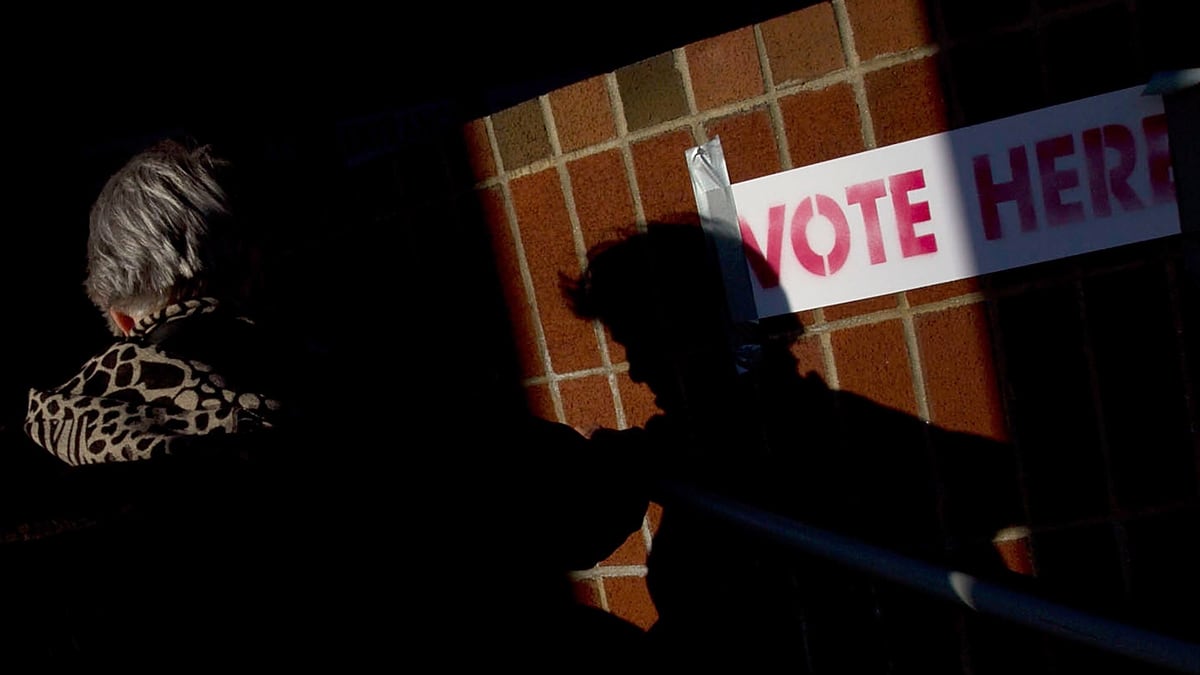These next few weeks, just after the conventions, mark the true beginning of the 2012 election season. How fitting that, after brewing for almost two years, the war over who can and cannot vote appears to be coming to a head—at least for this election cycle.

Since the beginning of 2011, a wave of state legislatures passed laws making it harder to vote. More than two-dozen measures passed in 19 states, but the courts and voters have fought back. This week saw important victories for voting-rights advocates in Texas and Florida.
On Thursday, a federal court blocked Texas’s restrictive voter-ID law, which could have turned away thousands of minority voters who lack the required ID. The judges found the law violated the Voting Rights Act, a landmark civil-rights law enacted to prevent this kind of discrimination.
But Texas law already required voters to present an ID at the polls and that law will still be in effect in November. The problem with the new law was the Lone Star State tried to severely limit the kind of IDs considered acceptable at polling stations, which would affect who could vote. For example, the new law excluded student and other photo IDs, but allowed concealed-carry permits.
On Tuesday, another federal judge said he would permanently remove onerous new rules on registration drives in Florida, which prevented groups like the League of Women Voters and Rock the Vote from signing up new voters. This comes just weeks after another panel of federal judges blocked Florida’s attempt to restrict early voting in five counties covered by the Voting Rights Act.
The pattern in the worst of these new voting laws is clear. They are being passed by politicians who are trying to manipulate the system for their own benefit—because they don’t like what voters have to say.
But the pushback is also clear.
Earlier this year, two local judges blocked Wisconsin’s voter-ID law because they said it violated the state constitution. A judge in Missouri threw out an ID ballot referendum because the legislature’s wording was found to be misleading and “unfair.”
Voters have pushed back, too.
Maine lawmakers got rid of Election Day registration, which helped make the state one of the nation’s leaders in terms of voter turnout. Voters went to the polls last year and overturned the law. In Ohio, voters gathered enough signatures to put a restrictive law on the ballot, leading the legislature to withdraw the most onerous parts of the bill. (Of course, Ohio’s battle continues.)
We still await some other court decisions that could affect who can and cannot vote this November. But with any luck, the biggest legal battles over voting will soon be over. For the moment.
But what happens next year? Do the voting wars just start up again? That depends on whether both sides are committed to finding a way to preserve the American ideal: that our voting system remain free, fair, and accessible to all eligible Americans, and only eligible Americans.
One way to ensure this is to modernize our voter-registration system. Perhaps the biggest problem in election administration today is that we are using an outdated, ramshackle registration system. A voter has to fill out a paper form, then an election official copies that form into a database. This system is not only inefficient and costly, but prone to inaccuracy. Millions of eligible voters are left off the rolls or prevented from voting due to errors—such as misspelled names or mistyped addresses—in their records. Others—who move or pass away—are left on when they should be taken off.
Modernized voter registration uses technology to pass on names of eligible voters from state agencies to election officials. Citizens are also able to register or update their registration online or at the polls. Such a system will help ensure that more citizens are registered, accurately, and it will thus greatly curb opportunities for fraud. It’s a system the right and left should embrace.
Just this month, New York became the latest state to implement some of these measures, joining 21 other states that have moved forward on modernization. Supported by election officials from both parties, modernization increases accuracy and registration rates, protects election integrity, and saves money.
It’s a path out of the voting wars, and into a better system that all Americans can embrace. Come Jan. 1, 2013, politicians of both parties should take it.






